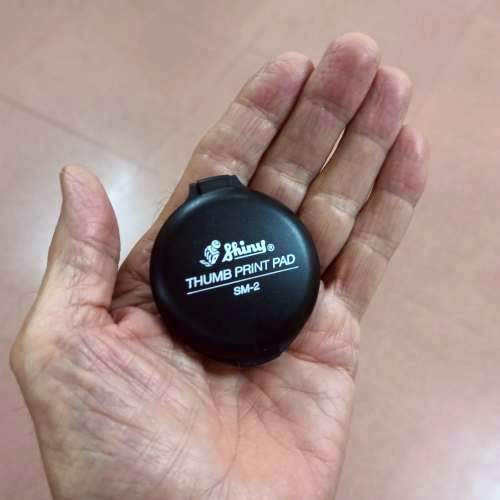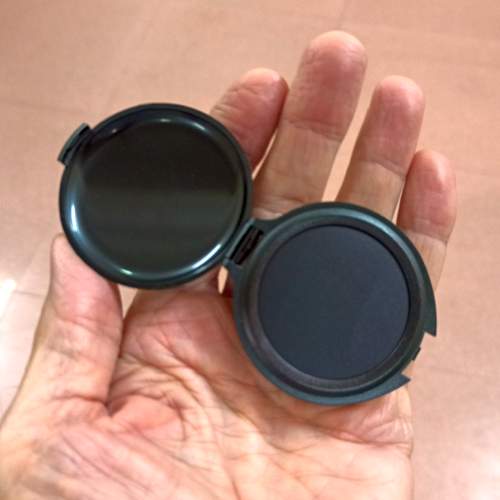Probably most contracts and agreements in Cambodia are signed with thumbprints rather than written signatures although the latter are becoming more popular. Today I had to “sign” a rental agreement and our director had this handy little pocket ink pad for making thumb prints.
Booster #3
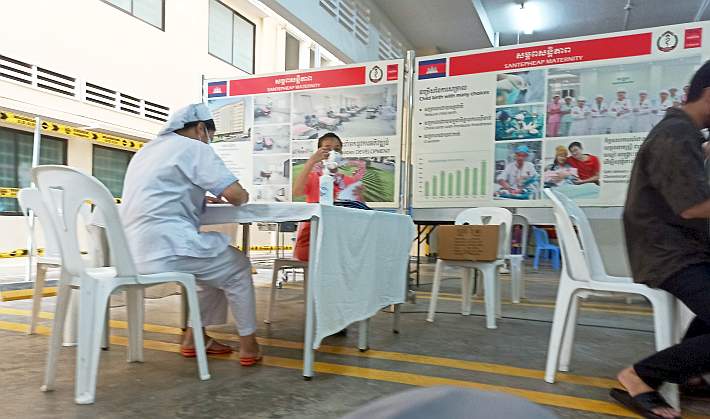
Today the members of Maryknoll Cambodia NGO received their fifth injection of the anti-Covid vaccine. It was booster shot #3. Our first three injections were AstraZeneca vaccine and the last two were Pfizer. Will they offer protection against the B5 variant that is spreading?
Notable Quotes

Interesting….

Will it work out?
When Covid closed the churches in March, 2020 our English Catholic Community had to leave our “home” at World Vision on the south side of Phnom Penh. Many people–those who didn’t leave the country when so many schools and businesses closed–bemoaned the need to travel across Phnom Penh to St. Joseph Church for mass. Now we have been able to resume mass on the south side again, at the DK Centre. It offers quite a nice auditorium that we used before special occasions like Ash Wednesday.
We are having our Saturday mass there during the month of July to see if people find out about the new venue and if they come. We need a certain number of people to be able to afford this new expense.
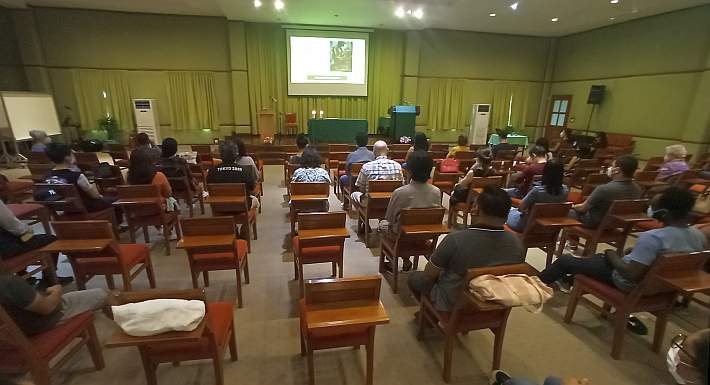
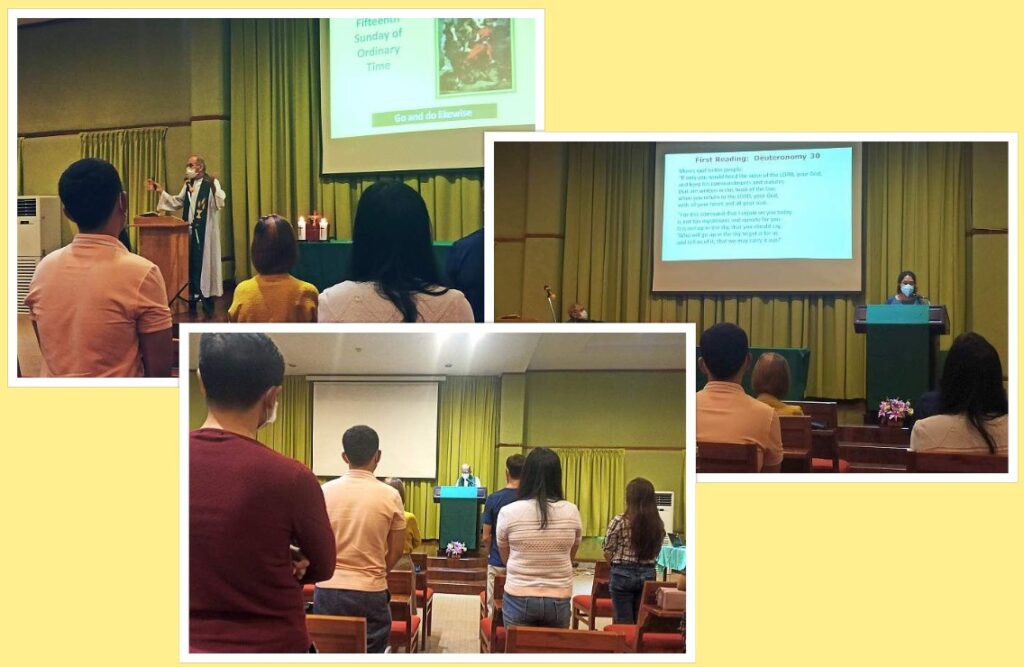
Busy Morning
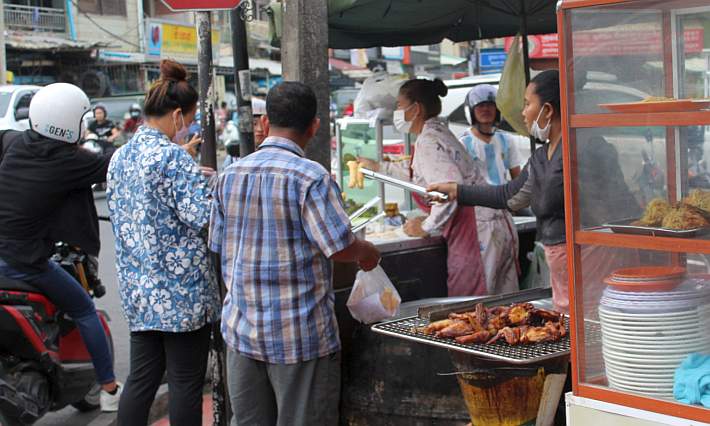
Street food is very much a part of Cambodian life. Probably most of the people eat breakfast either on the road, at stalls like this one, or at work or school having picked up something to eat on the way.
Covid Deja Vu
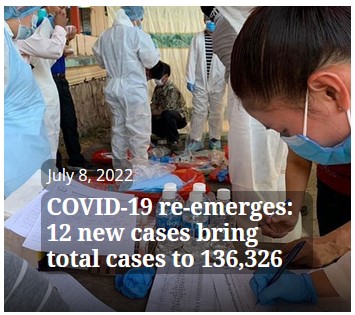
Cambodia has done a really credible job of handling Covid-19. The government pushed full vaccination for everyone and people complied, making Cambodia one of the most fully vaccinated countries in the world. And in May and June and July, 2022, Cambodia went 52 days without a new infection. That ended several days ago, though, as PCR testing detected 5 to 15 new infections each day. The continuing new infections are a concern but not unduly alarming because of the high vaccination rate which makes the Covid experience generally a mild one. The handful of new infections each day is only the tip of the iceberg, however. Those are just the people sent for testing by a doctor. Many, many other people are using rapid tests and discovering they are infected, but those are not included in the government statistics.
Banned…except when they are not
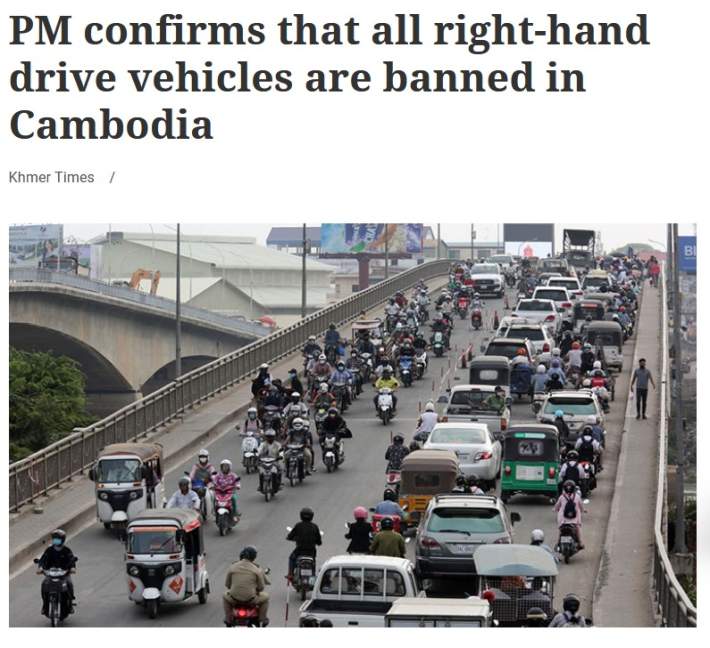
An article in yesterday’s Khmer Times newspaper makes it pretty clear that right-hand drive vehicles are banned in Cambodia. In other countries “banned” would mean you can’t use them. But this is Cambodia:
- About 10 or 12 years ago a law was passed outlawing right-hand vehicles.
- About a year later in one of his famous rambling speeches, the prime minister declared that actually right-hand vehicles could keep operating.
- It is not uncommon to see right-hand cars on the streets here.
- The government even issues a special license plate for right-hand vehicles–which are illegal according to the law that is ignored.
Now in the same article with the above headline, the PM says:
- Right-hand vehicles will no longer be allowed to be imported into the country. Meaning that all along, even though they were banned they were still able to be brought into the kingdom.
- The right-hand drives can continue to be used but now the drivers have to pay taxes on them. Meaning that previously, if you drove an illegal right-hand vehicle, you didn’t need to pay taxes while the legal drivers did.
- More than half of the R-H cars here have been converted to left-hand drive but that will no longer be required.
- “He also urged the people not to import right-hand drive cars anymore.” So much for a ban.
Women in the image of God

Following up last Sunday’s first reading from Isaiah which gave a feminine image for God, here is a selection from theologian Elizabeth Johnson:
The women’s movement in civil society and the church has shed a bright light on the pervasive exclusion of women from the realm of public symbol formation and decision making, and women’s consequent strong enforced subordination to the imagination and needs of a world designed chiefly by men. In the church this exclusion has been effective virtually everywhere: in ecclesial creeds, doctrines, prayers, theological systems, liturgical worship, patterns of spirituality, visions of mission, church order, leadership and discipline.
She Who Is (p. 4)
It has been stunningly effective in speech about God. While officially it is rightly and consistently said that God is spirit and so beyond identification with either male or female sex, yet the daily language of preaching, worship, catechesis, and instruction conveys a different message: God is male, or at least more like a man than a woman, or at least more fittingly addressed as male than as female…. Upon examination it becomes clear that this exclusive speech about God serves in manifold ways to support…a world that excludes or subordinates women. Wittingly or not, it undermines women’s human dignity as equally created in the image of God.
Forgiveness

